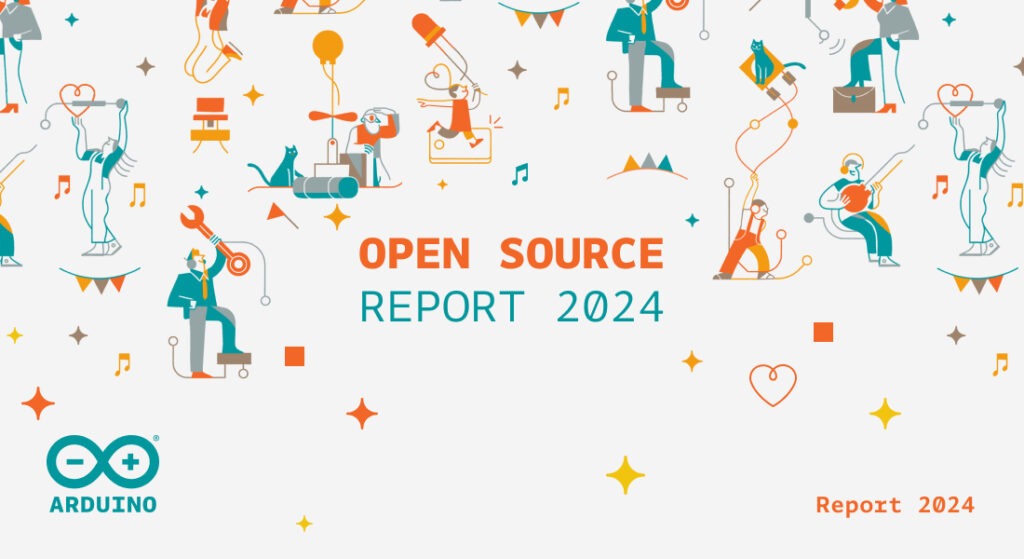
From steady community growth to the transition to Zephyr and the launch of new open-hardware boards, 2024 has been a milestone year for Arduino.
Arduino has officially released its latest annual Open Source Report, highlighting key advancements made throughout 2024. This year, the company made significant strides in its migration to the Zephyr real-time operating system (RTOS) and continued to expand the capabilities of the Arduino Lab for MicroPython.
“Arduino represents more than just a company; it is an open-source project and a thriving community,” the team writes in the introduction to the report. “With tens of millions of enthusiasts passionate about embedded electronics, we are also thousands of companies producing boards, shields, and accessories, alongside software developers who enhance the ecosystem. Our community includes educators, students, hackers, consultants, engineers, designers, and entrepreneurs. Over the past 18 years, we have collaborated daily, sharing knowledge and solutions, and fostering an industry built on openness, transparency, and collaboration.”
Key Developments in 2024
The release of the Arduino Open Source Report 2024 comes at the end of a transformative year. One of the biggest shifts for the company was its move away from Arm’s discontinued Mbed platform in favor of Zephyr RTOS. While this transition was initially a necessity, it has proven beneficial—Arduino’s efforts led to a beta release of its first Zephyr-based core in December 2023, and throughout 2024, the company contributed an impressive 114 patches to the upstream Zephyr project.
Hardware also played a significant role in Arduino’s achievements this year. The company introduced seven new open-hardware boards, though none were standalone microcontrollers. Instead, the Modulino Movement, Distance, Thermo, Knob, Buzzer, Pixels, and Buttons boards were designed as plug-and-play peripherals for the Plug and Make Kit, making hardware experimentation even more accessible.
Software Ecosystem Expansion
Arduino’s software ecosystem saw substantial upgrades, with five major updates to the next-generation Arduino IDE 2 and the landmark 1.0.0 release of the Arduino CLI command-line interface tool. Additionally, three versions of Arduino Lab for MicroPython were launched, including a cloud-based version, offering an alternative development environment for MicroPython-supported boards beyond the traditional C-based Wiring language.
Further bolstering its cloud services, Arduino rolled out 11 new versions of the Arduino Cloud CLI and 17 new versions of the Arduino Cloud Agent. The company also introduced 19 official new libraries, targeting various applications, including cellular connectivity, Modulino modules (in both C and MicroPython), and low-power management for the Portenta H7 and Portenta C33 boards.
A Thriving Community
Beyond the company’s direct efforts, the Arduino community continues to flourish. The number of third-party libraries grew 18% year-over-year, reaching a total of 7,669 libraries. Meanwhile, 368 new tutorials were added to the Arduino Project Hub, marking an 80% increase over 2023.
“The Arduino community extends far beyond what we can track,” the report acknowledges. “Every day, countless contributions are made across unofficial platforms and independent websites. These range from open-source code examples and full sketches to detailed documentation, tutorials, and even hardware designs like shields, accessories, and derived boards.”
Looking Ahead
With 2024 proving to be a year of innovation, community growth, and major transitions, Arduino remains committed to its core values—openness, collaboration, and the continuous evolution of the open-source ecosystem. The future looks bright as the company and its global community push the boundaries of what’s possible in embedded electronics.









